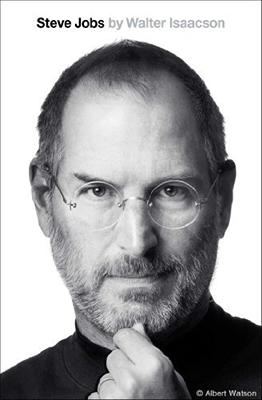Steve Jobs
“Walter Isaacson’s biography of Steve Jobs” is a comprehensive exploration of the life, career, and personality of one of the most influential figures in modern technology. Here’s a summary of the key aspects covered in the book:
Early Life and Background
Steve Jobs was born on February 24, 1955, in San Francisco, California, and was adopted by Paul and Clara Jobs. Isaacson delves into Jobs’ early fascination with electronics and computers, his time at Reed College, and his travels to India in search of spiritual enlightenment.
Founding of Apple
The book covers Jobs’ partnership with Steve Wozniak and the founding of Apple Computer in Jobs’ parents’ garage in 1976. It explores their innovative approach to personal computing, highlighted by the release of the Apple II and the subsequent Macintosh.
Rise and Fall at Apple
Jobs’ leadership style at Apple was characterized by his intense vision, perfectionism, and a relentless pursuit of excellence. However, clashes with executives led to his departure from Apple in 1985.
NeXT and Pixar
Isaacson also discusses Jobs’ founding of NeXT, a computer platform development company, and his acquisition of the computer graphics division of Lucasfilm, which would eventually become Pixar Animation Studios. Jobs’ involvement with Pixar and its subsequent success with films like Toy Story played a significant role in shaping his legacy.
Return to Apple and Later Years
The biography covers Jobs’ return to Apple in 1997, the development of iconic products like the iMac, iPod, iPhone, and iPad, and his role in revolutionizing multiple industries. Jobs’ battle with cancer and his resignation as CEO of Apple in 2011, followed by his death in October 2011, are also detailed.
Personal Life and Personality
Isaacson provides insights into Jobs’ complex personality, including his perfectionism, charisma, ability to inspire others, and his sometimes difficult interpersonal relationships. The biography also delves into Jobs’ family life, including his marriage to Laurene Powell and his relationships with his children.
Legacy
Overall, Isaacson portrays Jobs as a visionary entrepreneur who transformed multiple industries and left a lasting impact on technology, design, and popular culture. The book offers a balanced view of Jobs’ achievements, as well as the challenges he faced throughout his career.
In conclusion, “Steve Jobs” by Walter Isaacson is not only a biography of a tech icon but also a study of creativity, innovation, and the intersection of technology and the humanities. It provides readers with a detailed look into the life of Steve Jobs, his successes, failures, and enduring influence on the world.

